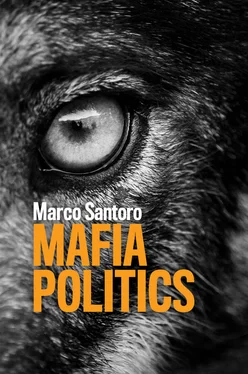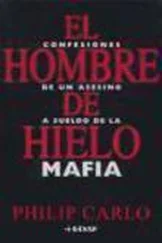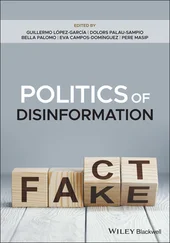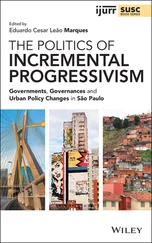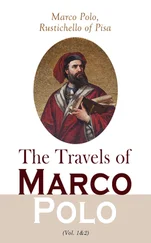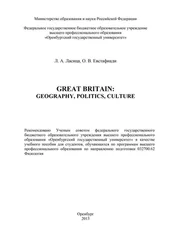Given its impact on current research, it is worth noting here how Franchetti arrives at this suggestion and how he elaborates on this conceptualization. The following quotation is helpful in this endeavour:
The complete fact of which only one phenomenon is covered by the common meaning of the word [‘crime’], is the way of being of a given society and the individuals comprising it. As a consequence, to speak efficiently and in a way that makes the idea clear, it is better to express it with an adjective and not a name. The Sicilian usage, competent judge in this matter, expresses it precisely with the adjective ‘mafioso’, which does not mean a man devoted to crime, but a man who is able to make his rights respected, independently from the means he uses for this objective . And, as in the social context we have tried to describe, violence is often the best means he has to make himself respected, so it was natural that the word used in an immediately derivative sense ended up meaning a man devoted to blood. Thus the term mafia found a class of violent criminals ready and waiting for a name to define them, and, given their special character and importance in Sicilian society, they had the right to a different name from the one defining vulgar criminals in other countries. The importance gained by this social class of independent thugs ( facinorosi ) had the effect of assuring them of the moral authority enjoyed by every private force able to become superior in Sicily for the reasons above. As a consequence, on the island, this class of thugs has a very special status, which has nothing to do with that of delinquents in other countries, as much as they may be numerous, smart and well organized, and you can almost say that here it is a social institution … a class with industry and interests of its own, an independent social force. (1993 [1877]; my translation, emphasis added)
As this quotation makes clear, Franchetti’s vision of the mafia was much wider and deeper than the one for which he is nowadays recalled – the ‘industry of violence’ may be just one aspect of the ‘complete fact’ that manifests itself in the ‘way of being of a given society and the individuals comprising it’. In addition, industry was used by Franchetti not as the name for a sector in the production of goods or related services within an economy (as in the modern English use), but in the old Italian sense of operosità and attività , i.e. industriousness and productivity. We will elaborate on this point in the next chapter. What has to be emphasized at this point is that Franchetti’s analysis is only apparently focused exclusively on Sicily and the mafia. Indeed, what he is continually doing while describing and making sense of social and cultural features is a comparison between what he observes, what he listens to, what he reads (in local newspapers, for example) and what he considers the model of modern political and social organization, i.e. the rule of law, as he could see – along with many of his contemporaries with liberal attitudes and beliefs – in the British constitutional system. The image of mafia we find in Franchetti’s pages is an image depicted in contrast with the image of a liberal, market-oriented society based on the rule of law.
Not surprisingly, Franchetti’s analysis was attacked, disbelieved and labelled as ‘fiction’ by a host of Sicilian intellectuals and politicians (for a contemporary account, see Alongi 1977 [1887]; for an example of a pamphlet against Franchetti, see Conti 1877; see also Capuana, 1898). Today, the same text is considered one of the most coherent and comprehensive accounts of the Sicilian mafia and its social causes. Indeed, there is much to be praised in that book. But this should not make us blind to the positioning of the author and the bias that his political objectives and, above all, his mind set could have produced in his analysis. Franchetti’s interpretation of the mafia is embedded in a cultural frame in which the state – in its liberal, constitutional form – is assumed to be a sort of universal institution, an incarnation of reason, freedom and modernity. The same is true for the ‘rule of law’ – an ideological pillar of the whole edifice that sets the standard for the assessment of any institution.
The parameters of the debate on mafia, camorra and the like in the last decades of the nineteenth century were, however, less a legacy of Franchetti than of an eclectic scientist, one of the most influential scholars of the time, indeed – whose scientific standards, according to the current vision, were so flexible as to make his work more interesting nowadays as evidence of human fantasy than for its research results. It is difficult to imagine today just how influential Cesare Lombroso, the author of scientific bestsellers such as L’uomo delinquente (1876) and L’uomo di genio (1893), could have been in those decades, in Italy and elsewhere. The number of pages Lombroso devoted to southern peculiarities and mafias in his numerous publications is not that large (even though he started to devote himself to these issues very early, see Lombroso 1863), but we could say that much of what was written on mafias in the latter decades of the nineteenth century was in some way related to him and his ideas. This is the case of Giuseppe Alongi’s La maffia (1887) and La camorra (1890), both published in a book series edited by Lombroso, as well as Abele De Blasio’s Usi e costume dei camorristi (1897), with a preface by Lombroso, and Antonino Cutrera’s La mafia e i mafiosi: origini e manifestazioni. Studio di sociologia criminale (1900). Alongi and Cutrera were not academics but policemen, attracted to the social sciences thanks to the new discipline Lombroso had founded: criminal anthropology. A physician by education, De Blasio was a follower of the Lombroso School and one of the early academic practitioners of anthropology in Italy as well as the author of dozens of articles and books on phrenology, prehistory and the sociology of deviant behaviour. While influenced by Lombroso’s idea of the ‘born criminal’ and other aspects of his biological theory of crime, neither these writers, nor Lombroso himself, were so blind, or so consistent, as not to notice other causal factors linked to history and social context. All in all, the Lombrosian legacy had a massive impact on the social study of the so-called ‘dangerous classes’ in fin de siècle Italy.
This is also the case of Napoleone Colajanni’s Nel regno della mafia (1900), a booklet whose contents are maybe less interesting than its author. A participant in the Risorgimento as a young man, Colajanni would become a socialist leader and an accomplished social scientist – a professor of statistics, demography and even sociology at the University of Naples, and author of many pioneering books in these disciplines. Today his name is especially remembered for his intellectual conflict with Lombroso (a socialist himself) and his School: whereas the latter insisted on the biological foundations of social and cultural divides (such as the one between northern and southern Italians, or between normal and criminal men/women) captured by the category of ‘race’, Colajanni was firmly against any form of biological determinism and a strong supporter of the argument that social inequalities and institutions are the unique real determinants of criminal conduct (Colajanni 1890). He published extensively on the divide between northern and southern Italy on poverty, on backwardness and deviant behaviour, especially in Sicily (e.g., Colajanni 1895). His pamphlet on the mafia adds a special sensitivity to political issues to his usual arguments, claiming that it is the Italian state – its ruling class, i.e. its government – that is primarily responsible for the mafia’s existence and persistence, thanks to the diffuse practices of corruption and their general acceptance as ways of governance (Colajanni 1900).
Читать дальше
